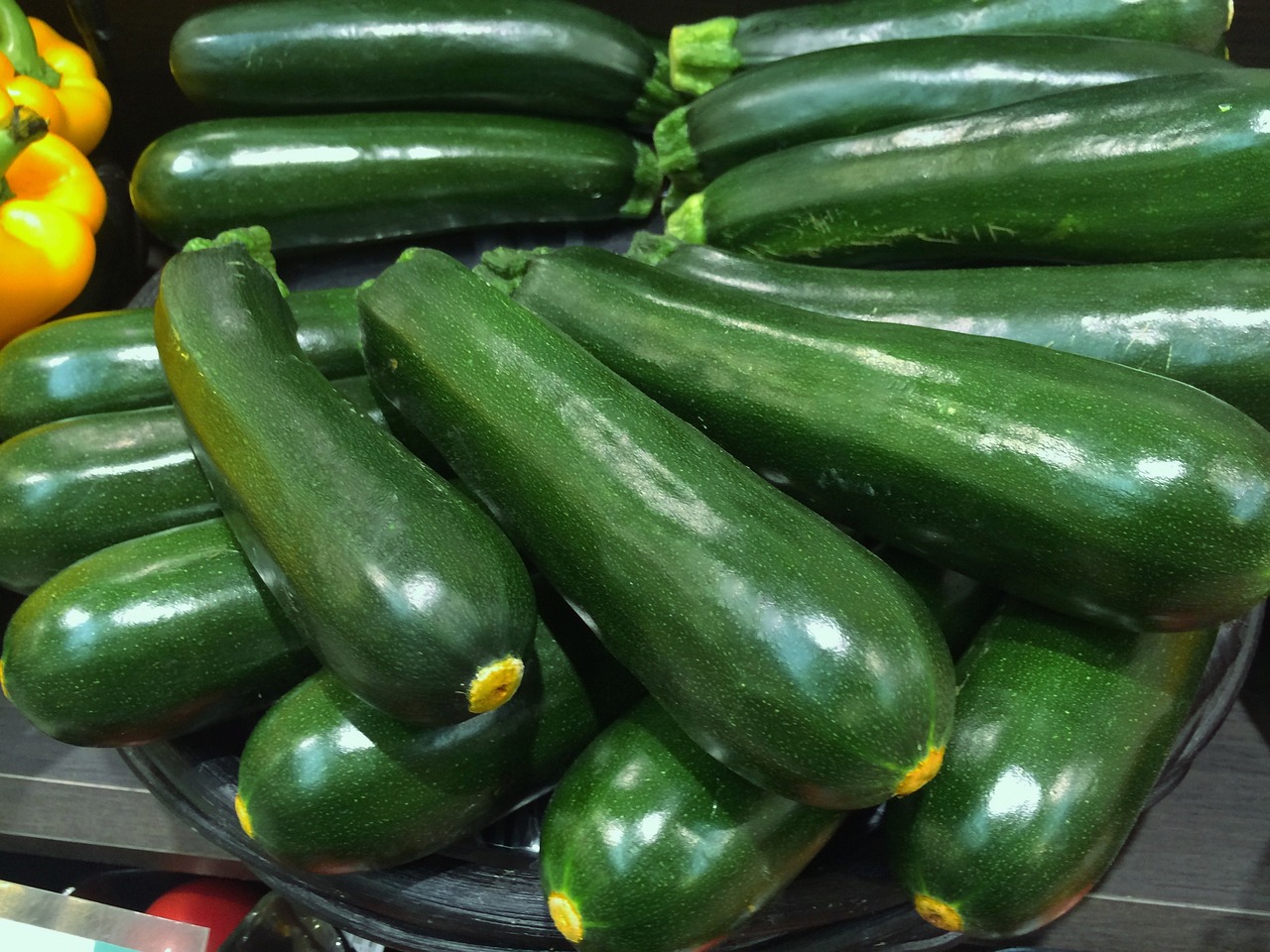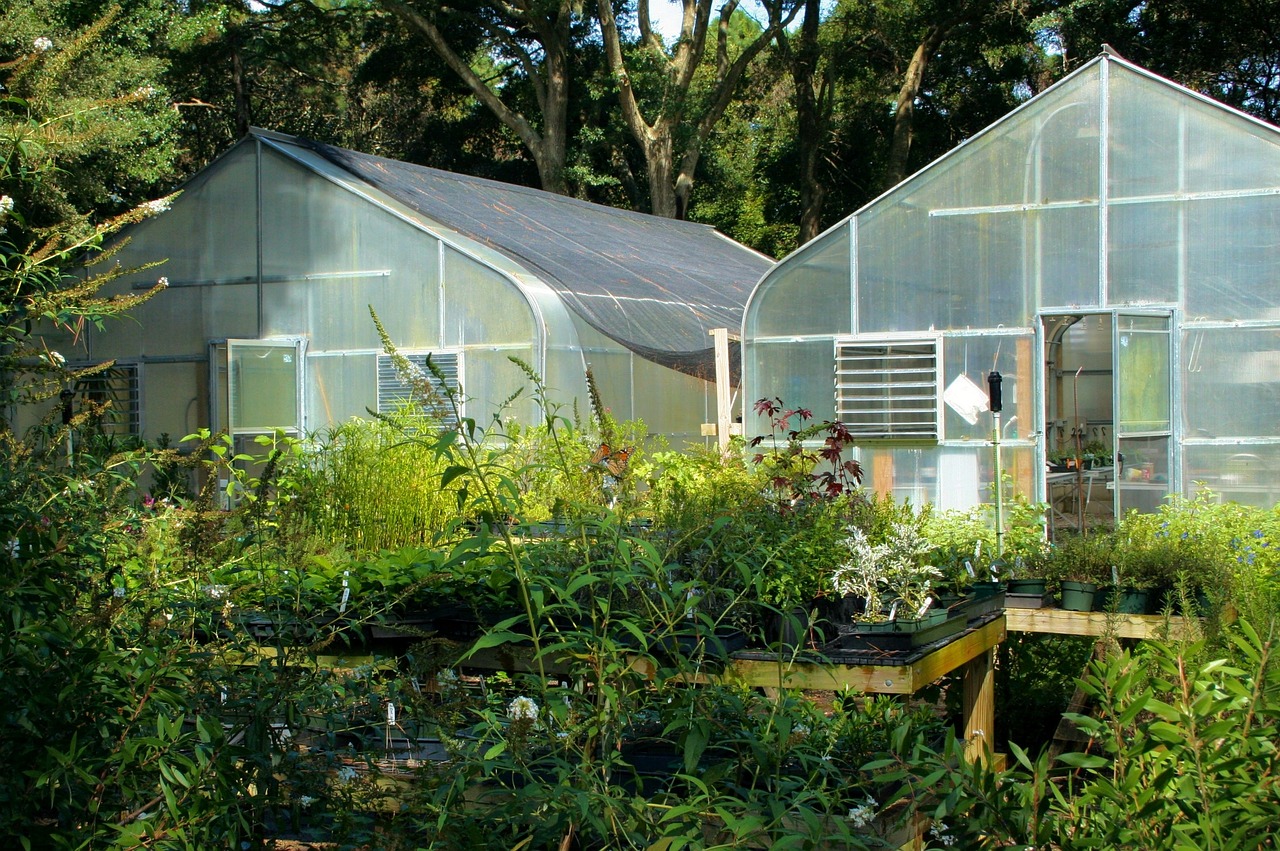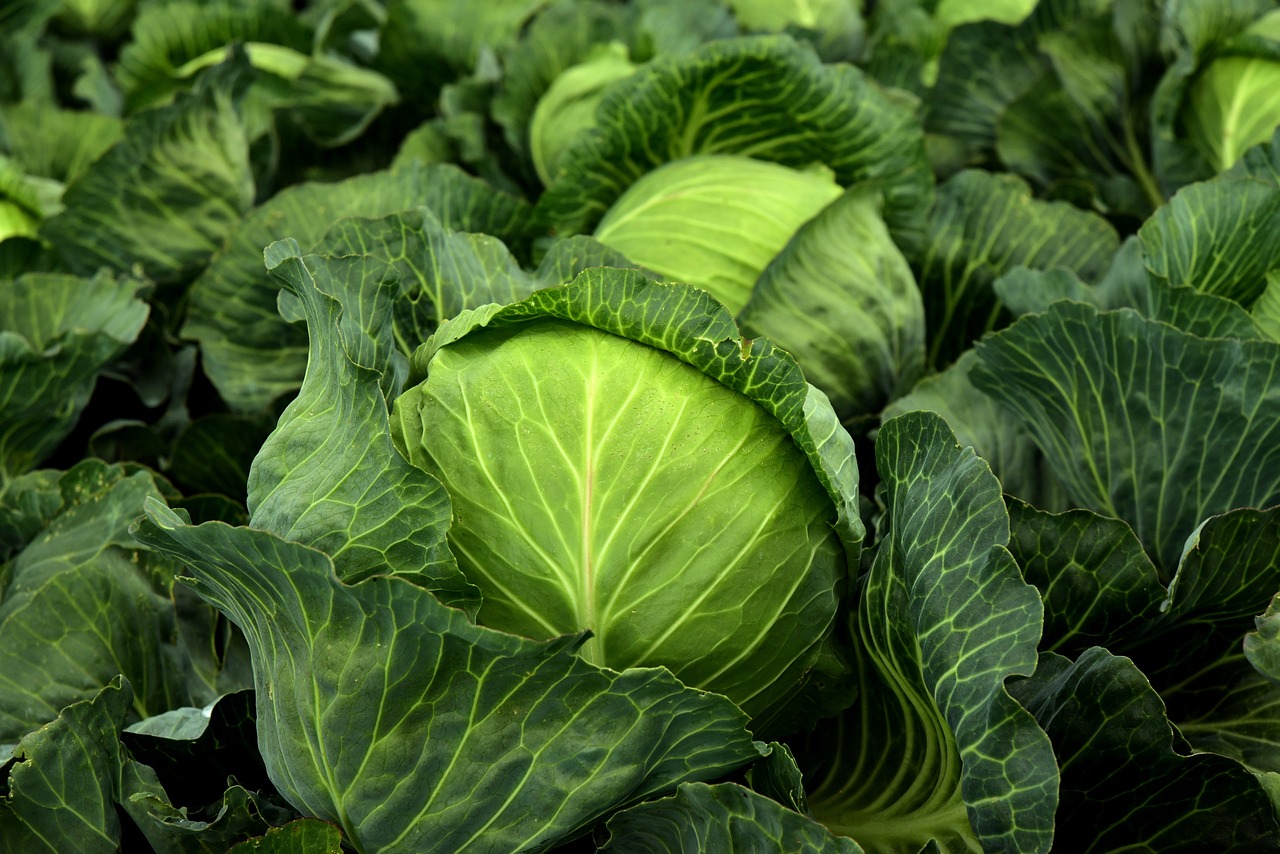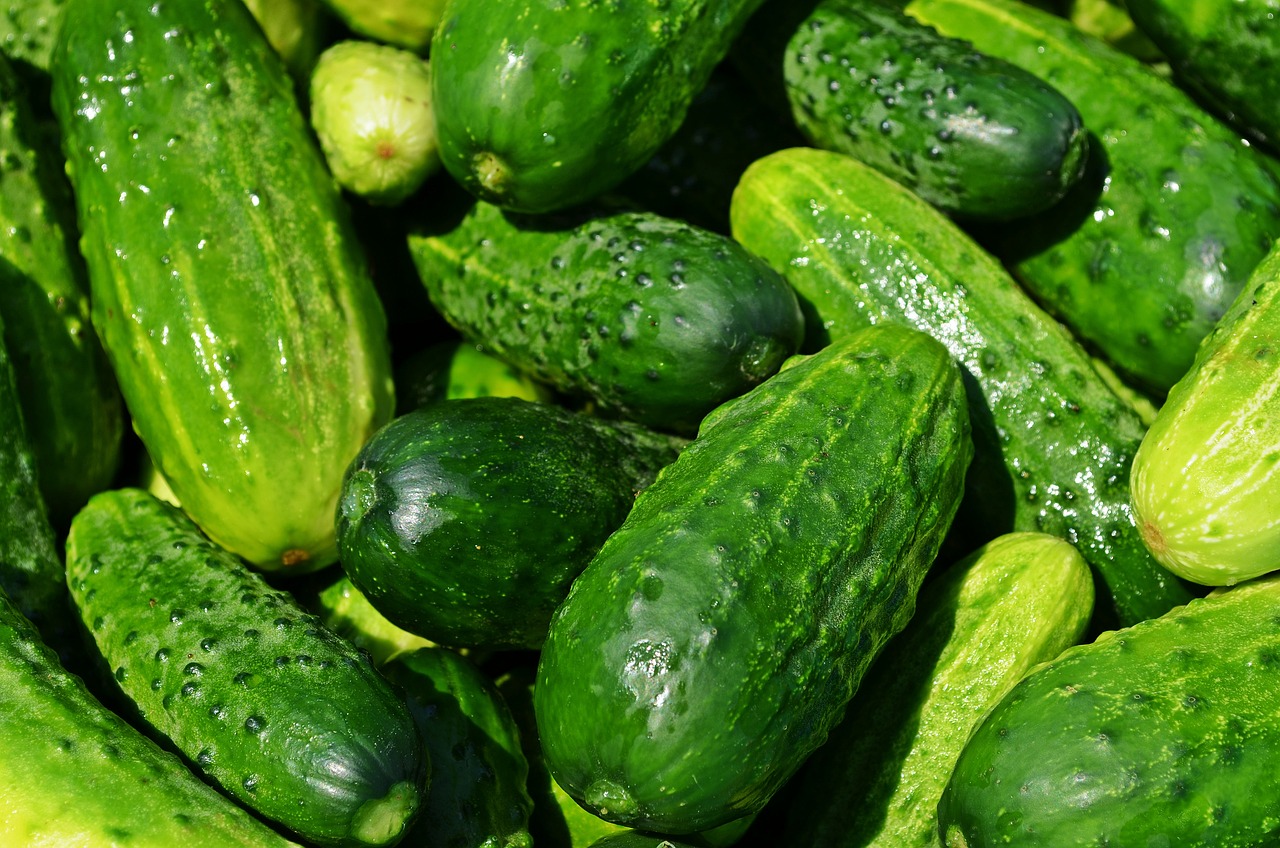Are you looking to grow your own organic zucchini at home? Whether you’re a seasoned gardener or a beginner, growing zucchini can be a fun and rewarding experience. Not only are they delicious and versatile in the kitchen, but they also offer a variety of health benefits.
To successfully grow organic zucchini, you’ll need to choose the right location, prepare the soil, and care for your plants properly. With a few simple strategies, you can enjoy a bountiful harvest of fresh, healthy zucchini all season long.
In this article, we’ll guide you through the process of growing organic zucchini at home, from selecting the perfect spot for your garden to troubleshooting common issues that may arise.
So grab your gardening gloves and get ready to dig in!
Choosing the Right Location for Your Zucchini Garden
You’ll want to choose the perfect location for your zucchini garden, taking into account factors such as sunlight, soil quality, and drainage. A well-draining soil with a pH of 6.0 to 7.5 is ideal for zucchini.
Look for an area with full sun exposure for at least six hours a day. If you don’t have a spot with full sun exposure, consider planting zucchini in pots that can be moved around to follow the sun.
Garden layout is also important when growing zucchini. Zucchini plants can take up a lot of space, so make sure to give them enough room to grow. They need at least three feet between each plant and five to six feet between each row.
Consider planting zucchini along the edge of your garden to make the most of the available space. With the right location and layout, you’ll be on your way to a successful zucchini harvest.
Preparing the Soil for Organic Zucchini Growth
Preparing the soil is crucial for healthy and thriving zucchini plants in your garden. Before planting, it’s important to conduct a soil test to determine the pH level and nutrient content. This will help you determine if any amendments are needed to create optimal growing conditions for your zucchini.
One key amendment for preparing soil for organic zucchini growth is compost application. Compost is an excellent source of organic matter that adds nutrients and improves soil structure. You can add compost to your soil by mixing it in at a depth of 6-8 inches or by top-dressing your soil with a layer of compost.
This will help retain moisture and increase the soil’s ability to hold nutrients, which will benefit your zucchini plants throughout the growing season.
Planting and Caring for Your Zucchini Plants
Once the soil’s been amended and enriched with compost, it’s time to get your zucchini plants in the ground. Begin nurturing them to ensure a bountiful harvest.
Start by planting your zucchini seeds or seedlings in well-draining soil with ample sunlight. Zucchini plants need at least six hours of sunlight per day and prefer soil with a pH level between 6.0 and 7.5.
Companion planting can also be beneficial for growing organic zucchini. Planting herbs like basil, oregano, and thyme near your zucchini can help deter pests and attract beneficial insects.
Additionally, interplanting zucchini with other vegetables like beans, corn, and peas can help maximize your garden space and improve soil health.
When it comes to pest management, handpicking insects and using organic pest control methods like neem oil or insecticidal soap can help keep your zucchini plants healthy and thriving.
Harvesting and Maintaining Your Organic Zucchini
To keep your zucchini plants producing throughout the growing season, it’s important to regularly harvest the mature fruit. Gently twist the zucchini from the stem to avoid damaging the plant. Once harvested, the zucchini can be stored in the refrigerator for up to a week.
If you have an abundance of zucchini, consider freezing it for later use or getting creative with recipes such as zucchini bread, zucchini noodles, or stuffed zucchini. One of the benefits of growing organic zucchini is that it is free from harmful pesticides and chemicals. This means that you can enjoy the full nutritional benefits of the vegetable without any negative effects on your health.
Organic zucchini is also more environmentally friendly, promoting healthy soil and biodiversity. By following these harvesting and storage tips, you can ensure a bountiful zucchini crop and enjoy the many benefits of this delicious and versatile vegetable.
Troubleshooting Common Zucchini Growing Issues
If you encounter common issues while cultivating your zucchini, you can troubleshoot them by identifying the problem and taking appropriate action.
One of the most common problems is pests, such as squash bugs and vine borers, which can cause serious damage to your plants. To manage these pests, you can try using organic methods such as hand-picking them off the plants, applying neem oil or diatomaceous earth, or using companion planting techniques. For example, planting marigolds or nasturtiums near your zucchini can help repel pests.
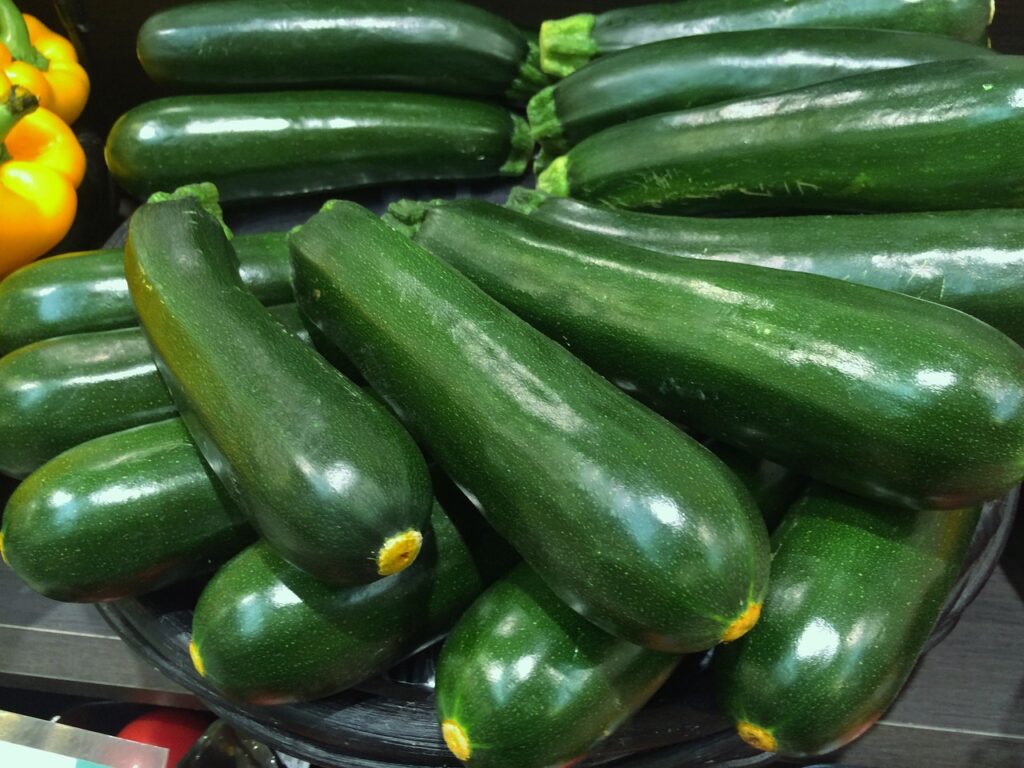
Another issue that may arise is poor growth or stunted plants. This can be caused by a variety of factors such as poor soil quality, lack of sunlight, or over-watering. To address these issues, you can try amending your soil with organic compost or fertilizer, ensuring your plants receive at least 6 hours of sunlight a day, and only watering when the soil is dry to the touch.
By taking these steps and being proactive in identifying and addressing common zucchini growing issues, you can ensure a healthy and bountiful harvest.
Frequently Asked Questions
How do I prevent my zucchini plants from getting too big?
To prevent your zucchini plants from getting too big, use pruning techniques to remove excess leaves and stems. Consider companion planting with herbs like basil or marigolds to deter pests and promote healthy growth.
Can I grow zucchini in containers?
Yes, you can grow zucchini in containers! Container gardening is a great option for those with limited space. Use a rich soil mixture, keep the container well-drained, and make sure the plant has enough space and sunlight.
How often should I water my zucchini plants?
To ensure healthy plants, monitor soil moisture levels and water your zucchini plants in containers when the top inch of soil feels dry. Zucchini watering frequency may vary based on environmental factors.
What is the best way to store harvested zucchini?
To prolong the freshness of harvested zucchini, store it in a plastic bag in the refrigerator. Do not wash it until ready to use. Use within 4-5 days for best quality.
How do I know when my zucchini is ready to be harvested?
To know when your zucchini is ready to harvest, look for firm and evenly colored ones that are about 6-8 inches long. Harvesting techniques include using pruning shears or a sharp knife and cutting the stem close to the base. Zucchini ripeness indicators also include a glossy skin and a slight give when pressed.
Conclusion
Congratulations! You now have all the information you need to successfully grow delicious organic zucchini in your very own backyard. Remember, the key to healthy and productive plants is choosing the right location, preparing the soil properly, and providing consistent care throughout the growing season.
When it comes to harvesting, be sure to regularly check your zucchini plants for ripe fruit and remove any that have become overgrown. Additionally, keep an eye out for common issues such as pests or disease and take appropriate action as needed.
By following these strategies and putting in a little bit of effort, you’ll soon be enjoying fresh, organic zucchini straight from your own garden. Happy growing!






